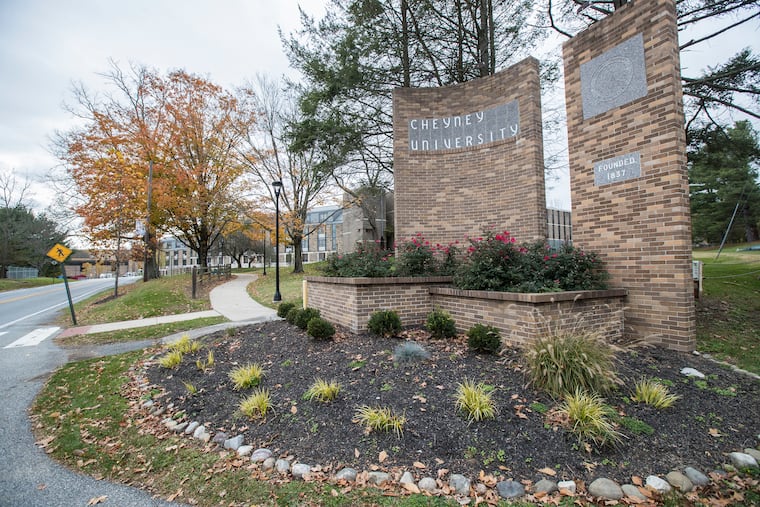Pa. state universities to hike tuition nearly 3 percent
In a vote of 15-4, with three state lawmakers in opposition, the board of governors, overseeing the 14 state universities, voted to raise tuition, as the system continues to struggle with decreasing enrollment and budget shortfalls.

The 14 universities in Pennsylvania's state system will hike tuition by nearly 3 percent for 2018-19, despite calls from legislators to freeze costs.
Pennsylvania students — nearly 90 percent of those enrolled — will pay $224 more per year for a total cost of $7,716 under the plan approved Thursday by the system's board of governors and endorsed by Gov. Wolf.
The 15-4 vote came as members grappled with how to close a nearly $50 million budget gap. The tuition increase will help with about $30 million of that.
"We would like not to raise it, but we have a gap to fill," said Tom Muller, chair of the university success committee, who proposed the increase.
The system has been struggling for years with declining enrollment and budget shortfalls, and last year embarked on an improvement plan. This year, the legislature awarded the system a 3.3 percent boost in funding, worth about $15 million, and House Speaker Mike Turzai (R., Allegheny) called on state and state-related schools to freeze tuition and room and board costs.
Turzai, who is on the system's board of governors, voted against the tuition hike.
"We had hoped that, given four straight increases in appropriations to the state system, the board would see fit this year to not increase Pennsylvania students' tuition," Turzai said in a statement after Thursday's meeting. "When legislators voted for the fourth straight increase in state funding, many members' vote was predicated upon an expectation that the [state system] universities would hold the line on tuition."
Joining in opposing the hike were State Rep. Michael Hanna, State Sen. Judith Schwank, and student Joar Dahn.
Schwank said she could have supported a 2.5 percent increase.
"I'm very concerned about the student debt load, affordability, accessibility, all the things that we say we need to be for our students," she said. "We undermine that by continually raising tuition."
But others said maintaining the quality of programs and staff and the student experience were more important.
"At a certain point, you're cutting into bone. You're cutting into vital arteries," said board member David Maser, who supported the increase. "I will support the motion because I think it's the right balance."
During about an hour of discussion, the board struggled with how to close a budget shortfall for a system that has cut $360 million since 2005.
Sarah Galbally, Wolf's representative on the board, who voted in favor of the increase, said the decision was difficult. The system is struggling with a structural deficit and needs additional resources, she said.
"This is not a decision the governor made lightly or flippantly," she said.
The state system schools are Bloomsburg, California, Cheyney, Clarion, East Stroudsburg, Edinboro, Indiana, Kutztown, Lock Haven, Mansfield, Millersville, Shippensburg, Slippery Rock, and West Chester,
Earlier this week, Temple University voted to raise tuition by 2 percent. Lincoln University, also state-related, raised tuition for incoming freshmen 2.5 percent over last year, but current students don't pay that. Lincoln guarantees students the same tuition all four years, the only one of the state-related or state universities to offer that.
The University of Pittsburgh and Pennsylvania State University plan to vote next week. Penn State president Eric Barron has said he will propose a freeze in light of the state's 3 percent funding boost for state-related schools.